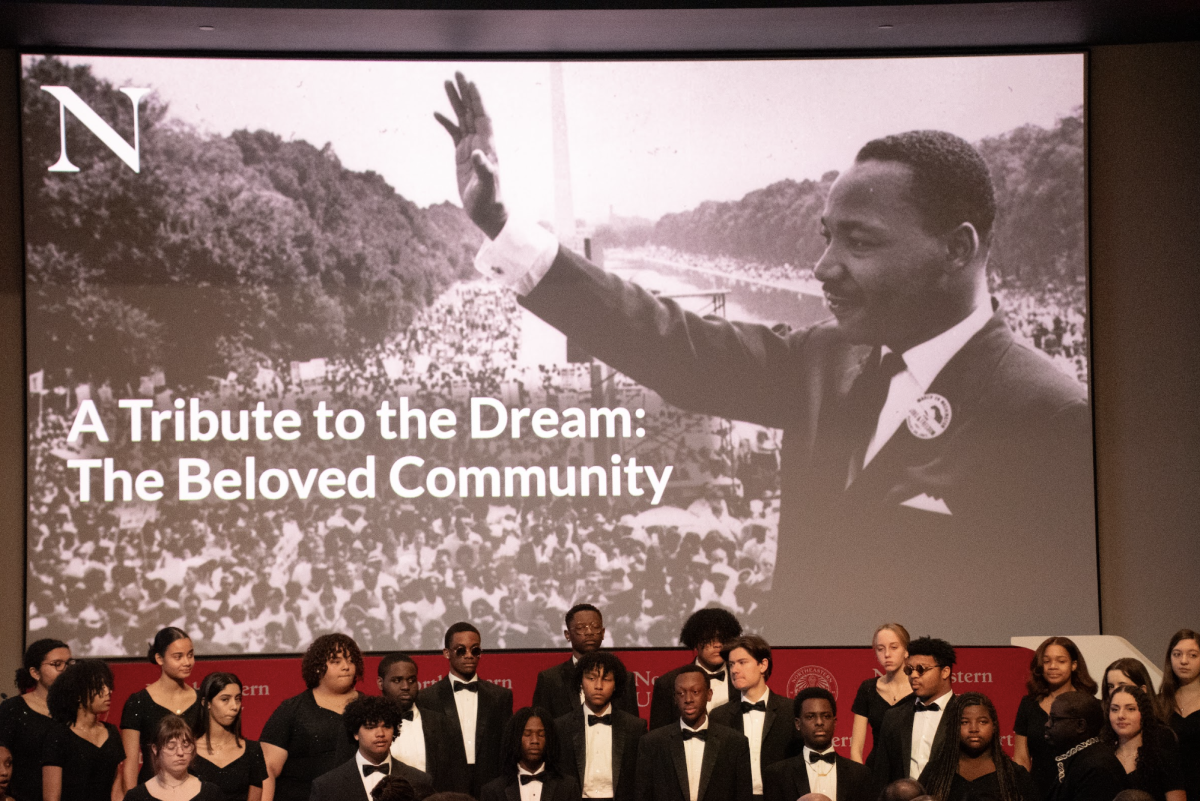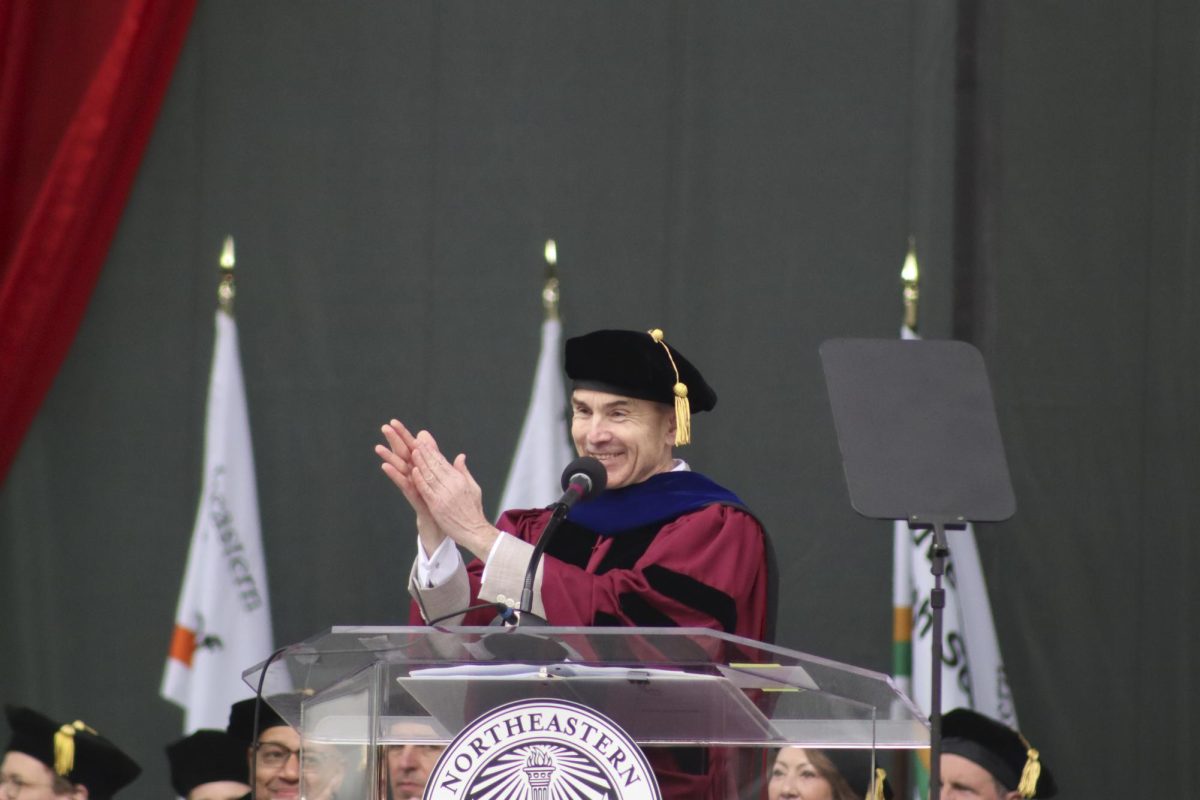By Marian Daniells, News Correspondent
It’s beginning to look a lot like Christmas, everywhere you go. But what about the other holidays? Amidst the hyper-commercialized Christmas festivities, are other holidays like Hanukkah overlooked? Christmas certainly holds a monopoly over the holiday music genre, but is there a top-secret, underground Hanukkah music scene? A black market for trading dreidels and CDs?
In a frenzy of laughs, passing the phone around from person to person, NU Hillel student president Andy Weiss and his friends discussed the nature of the holidays. Pegged as a potential ‘Christmas hater’ by one of his friends, Weiss conceded that Christmas overwhelms Hanukkah. His friend, sophomore Spencer Shiert, then stole the phone, adding that Christmas and Hanukkah ultimately serve the same purpose:’ to ‘bring people together, to help them feel as though they are a part of something bigger.’ He said, ‘It’s a season of community.’
Hanukkah is traditionally viewed as a minor holiday by Jews, overshadowed by Rosh Hashanah and Yom Kippur, said Assistant Director of Jewish Studies Dr. Jenny Sartori.
Hanukkah celebrates the cleansing and rededication of the Holy Temple in Jerusalem, which, according to tradition, had been overtaken by an oppressive king and turned into a pagan shrine. Though the holiday didn’t originally incorporate the practice of gift-giving, competition with the western, commercialized Christmas catalyzed a new practice of giving a gift each of the eight nights. Sartori said the gifts are mostly for the kids’ benefit; adults seldom give each other presents.
Regarding the underground black market, NU Hillel Director Beth Meltzer said there are ‘many contemporary Jewish musicians [composing Hanukkah music].’
Joshua Jacobson, conductor for the NU Choral Society, said he has composed Hanukkah music of his own. When asked if there is a competition between Christmas music and Hanukkah music, he said, ‘There shouldn’t be.’
Weiss said Hanukkah is ‘not in the [Jewish] culture as much as Christmas’ is in Christian culture. He explained that Christmas serves as one of the most important Christian holidays, hence the wide array of Christmas repertoire, but Hanukkah lacks the importance to render a need for music.
Jacobson said he credits the frenzied annual search for Hanukkah music to education and government’s need for political correctness. Choral instructors, he explained, organize Christmas concerts, but don’t want to leave out other holidays, even though they are less substantial.
And while some, including Sartori, admit to being overwhelmed and often overlooked by the Christmas frenzy, music, and casual ‘Merry Christmases’ from strangers, reactions vary. Meltzer said she fights the Christmas craziness by mentally filtering it out.
‘We live as a minority,’ she said. ‘That’s just the way it is.’
Shiert offers a slightly different perspective, joking, ‘I’m 100 percent Jewish, but I absolutely love Christmas. On what other holiday do people just decorate trees and put up lights everywhere?’
And while religious authorities argue that a commercialized Christmas detracts from the sacred commemoration of Christ’s birth, Shiert counters that ‘the commercialization of Christmas is what takes away from the discrimination of the holidays. Instead of a season of religious holidays, it’s a season of community.’








